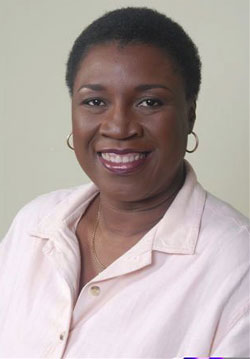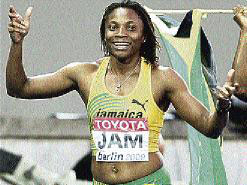
|
|
|
|
|
|
|
|
|
|
|
|
|
|
|
|
|
| Sports & Tourism |
Legacy from world champs and Olympics Carole Beckford, Contributor In just over two years, the Summer Olympics of 2012 will be held in London, July 27 to August 12, and Jamaica should have a decent crop of athletes to participate in those games. I use the word 'decent' because some changing of the guard will occur by then, and although I know the country will send the best team, it will not have the look and feel of the current crew. How then is the country, at the macro level, aiming to capitalise on the 'Essence of Brand Jamaica' following its successes of Beijing and Berlin? The lessons we should want to share with the rest of the world are: 1. The same level of excellence exhibited by the athletes is similar to that of the country at large. 2. The same energy highlighted by the athletes is the same level of energy offered through other services in the country. 3. The other traditional and non-traditional products are of the same quality of our sporting stars. 4. The people who lead/manage the successful athletes are just a fraction of the well educated workforce currently in Jamaica. The name Jamaica remains in the minds and even on the lips of a lot of people around the world, but I am getting the feeling that the value that sport has given Jamaica has not yet quite met the standard requirements to translate into a business ... enough to create additional focus and earnings for the country. The Jamaican economy at this time requires all the help it can get and diversifying the offerings through a number of industries, in this case, sport and entertainment should be seen as viable options. So once again there is the call for policies/guidelines for development of two of the industries which have the greatest potential to earn for Jamaica. As I think a lot of this requires a cultural change, the onus should be on the Ministry of Education to revise its strategy for the reinforcement of the teaching of physical education and music in schools, starting from the primary schools. People have to feel that they are part of the system, and if it becomes a habit, then it may just be easier to have buy-in from all concerned. The question is: How then does this translate to helping sport tourism to contribute to earnings for Jamaica? 1. See sport as a business. 2. Apply similar strategies to that of traditional sectors. 3. Merge ideas from the academic and the practical perspectives. 4. Find people who take the ideas seriously. 5. Implement programmes and activities that can work. 6. Evaluate the programme and activities. 7. Find international partners who will strengthen the resources and help to build the capacity. 8. DO IT! The sport and entertainment industries have come the closest to uniting us as a people, even with avid fans that choose sides, but both are tools for social growth and development. Time is running out as the brand capital that Jamaica has across the world could disappear slowly if we do not maximise the potential. Note: Penn Relays, the 116th edition will be special - stay tuned! cubeckford@gmail.com
|
All
rights reserved by the Gleaner Company Ltd.
© Gleaner
Company | Produced by Go
Jamaica
Hospitality Jamaica is updated every two (2) weeks
Privacy Policy

